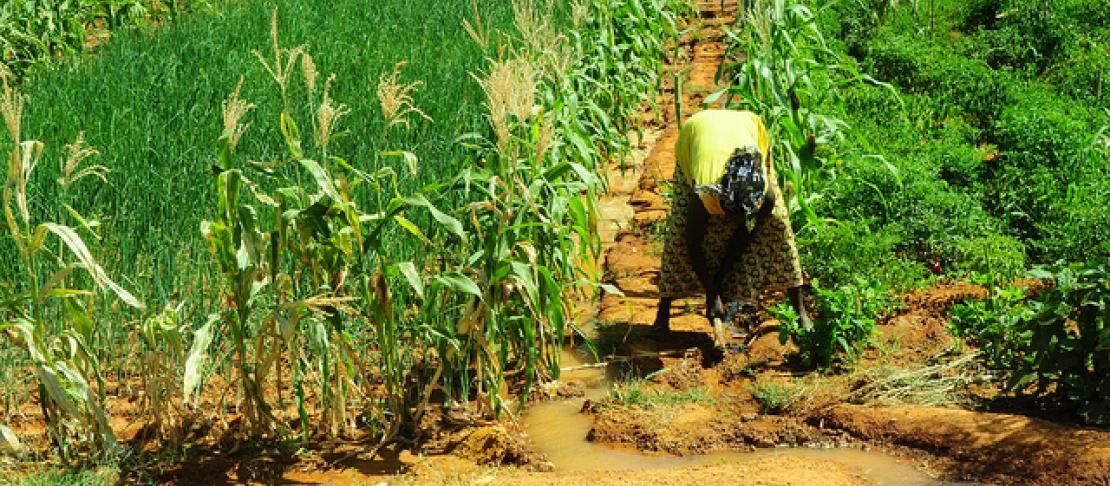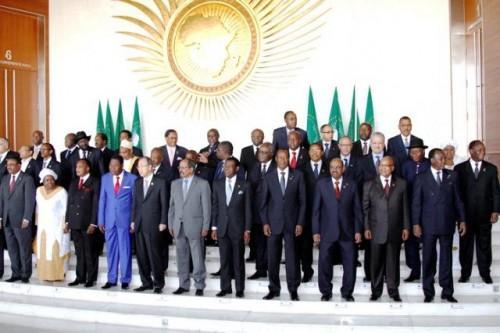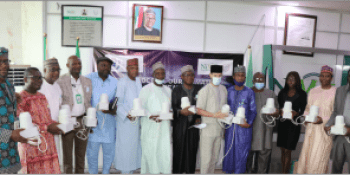Irrigation and climate change, Mali wants to take action

As we know, water is a key factor for the development of the agricultural sector. Given the effects of climate change, its increasingly limited availability has become a major problem for African countries. To better control this factor, the Malian authorities have decided to develop 350,000 hectares of irrigable land over the next few years.
During the African Union Summit in Malabo on the theme "Agriculture and Food Security in Africa", African Heads of State agreed to allocate 10% of their national budgets to the agricultural sector. The decision demonstrated their commitment to making agriculture the engine of development on the continent. It also emphasized the fact that water is essential for the development of a sustainable and prosperous African agricultural industry, particularly within the context of climate change. The issue of its availability in sufficient quantity and quality was discussed in detail.
Irrigation: a requirement for responding to climate change in Africa
The African economy is largely based on agriculture. Indeed, 70% of the African population depends on it. But there can be no crop production without freshwater, which presently largely depends on rainfall. The same applies to the survival of livestock, which depends on the accessibility of water ponds.
This was the verdict of a recent study conducted by the International Water Management Institute (IWMI) in collaboration with CCAFS on the implications of the changing climate in the Volta River Basin, backing up previous findings into the relationship between water and the African agricultural industry.
The practice of agriculture in Sub-Saharan Africa is closely linked to rainfall and unfortunately, the continent is one of the most vulnerable to climate variability and change. Since the late 1960s, there has been a general decline in rainfall and in West Africa, the decline is about 20% of the annual average.
This, of course, impacts on agriculture in many ways. In particular, it causes lower flow rates of major rivers, low crop yields, lower fishing yields, reduction of livestock, and poverty.
Since one-third of the African population is currently undernourished and the population is expected to increase from 700 million to more than one billion over the next two decades, it is essential to improve water management in order to reduce the risk of production failure and thus enable vulnerable communities to maintain their livelihoods. Within this extremely difficult context of climate variability and change, irrigation stands out as a key pathway to improving the resilience of rural populations.
Indeed, through irrigation one can plant and sow with more security, ensure continued growth and guarantee better yields. It can also increase the area under cultivation, as well as increase and stabilize production. Some irrigation techniques even help to fertilize the farms.
West African countries must therefore develop strong strategies on the issue, following the example of India and East Africa.
Mali wants to take action
Mali is one of the role models for funding agricultural intensification. With Burkina Faso, Ghana, Guinea, Niger and Senegal, the country was one of the few to honour the commitments made in Maputo 10 years ago.
According to the Minister of Rural Development, the country has actually exceeded the Maputo commitments by allocating 13% of its budget, instead of the 10% agreed. After such a major achievement, Mali is determined to make even more progress.
By 2018, and at the request of the President of the Republic, the country will allocate 15% of its national budget to the development of agriculture. The 15% will constitute the national agricultural support fund and will be used for subsidizing agricultural inputs, mechanization and motorization, as well as irrigation. It should be noted that the country is already subsidizing agricultural inputs for CFAF 35 billion in order to improve agricultural, animal, vegetable and fishery production and productivity.
With regards to irrigation, which according to Minister Treta is one of the best ways of combating climate change, Mali has decided to irrigate 350,000 hectares of land. That is 250,000 hectares more than the 100,000 hectares requested by the President of the Republic and reflects the enormous potential which the government see's in irrigation.
According to Minister Treta there are enough resources to achieve the goal and international mobilization is strong.
10 years after Maputo, Africa is currently driven by a fresh impetus
Ten years ago, the Heads of State meeting in Maputo made important decisions on the issue of agriculture in Africa. Unfortunately, these decisions have not been implemented. The decisions included the allocation of at least 10% of national budgets to the agricultural sector.

source: fasonet
The objective of this recent summit was to give fresh impetus to this vital sector of the African economy that employs two-thirds of the continent's population. All the issues were considered by African Foreign Ministers at the 25th Meeting of the Executive Council. The meeting was also attended by the President of the African Union Commission, Mrs. Nkosazana Zuma Dlamine and the United Nations Representative for the General Sector, Dr. Carlos Lopez.
During the preliminary proceedings, the Foreign Ministers discussed specific topics on the development of the agricultural sector in Africa. They focused on industrialization, irrigation and the marketing of our agricultural products that will, according to experts, reduce unemployment in Africa and create added value for our economies.
Dr. Lopez pointed out that China was able to launch its development through mechanization and industrialization, while Mrs. Zuma urged all people to make every effort to achieve the set objectives.
The 23rd African Union Summit closed with the adoption of a joint declaration aimed at accelerating the development of agriculture in Africa.
For more information, please consult 23rd African Union Summit
Sékou Touré is the Communication officer for CCAFS West Africa



